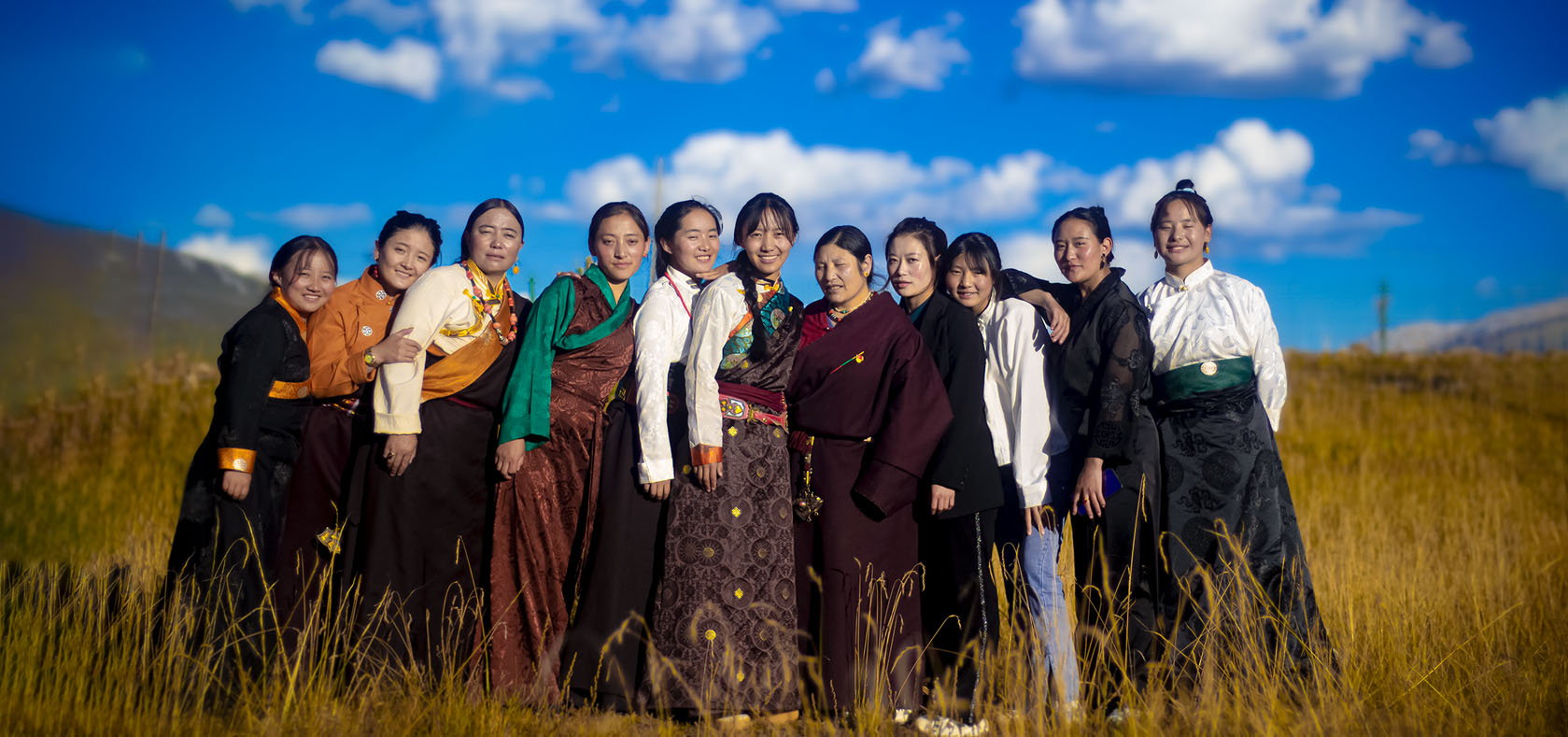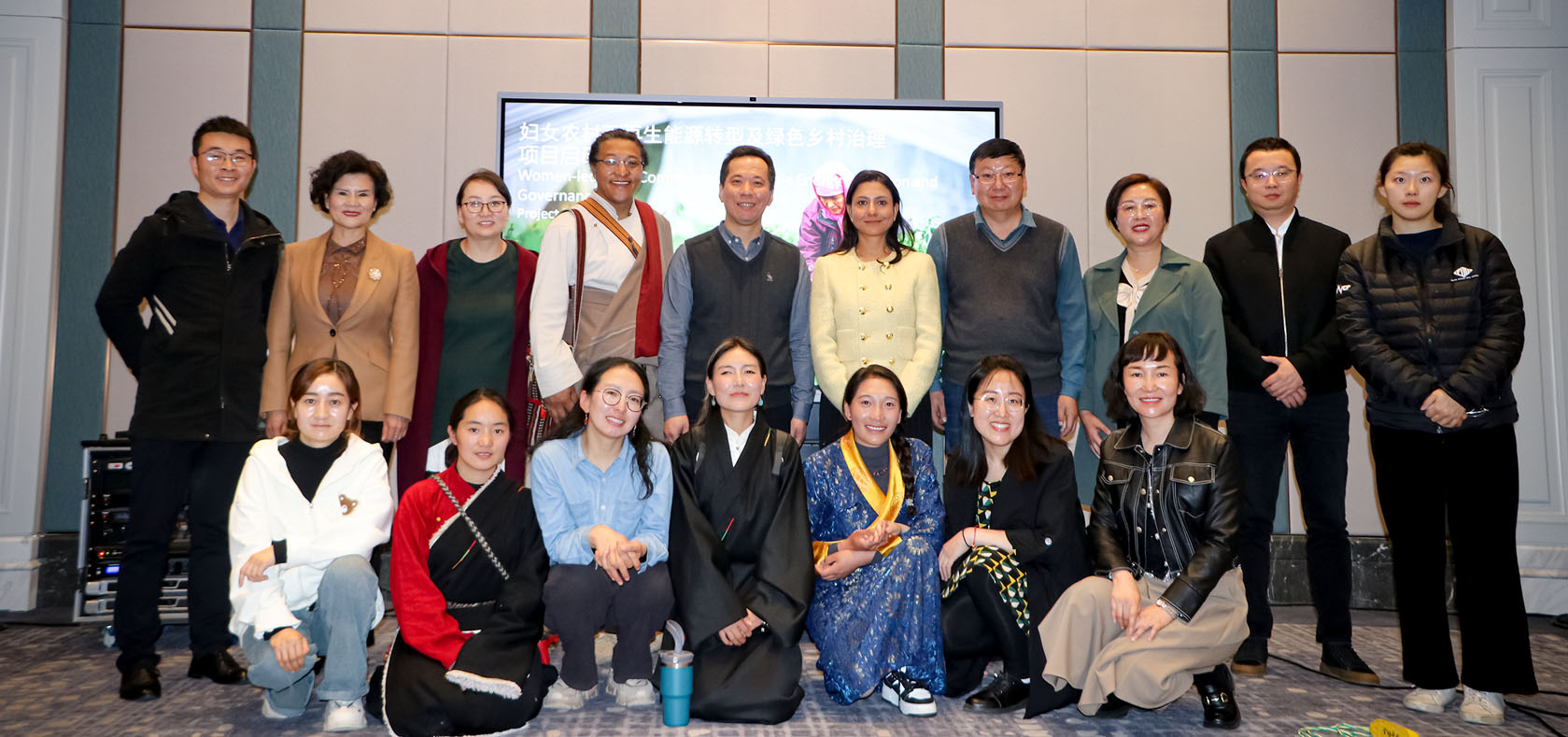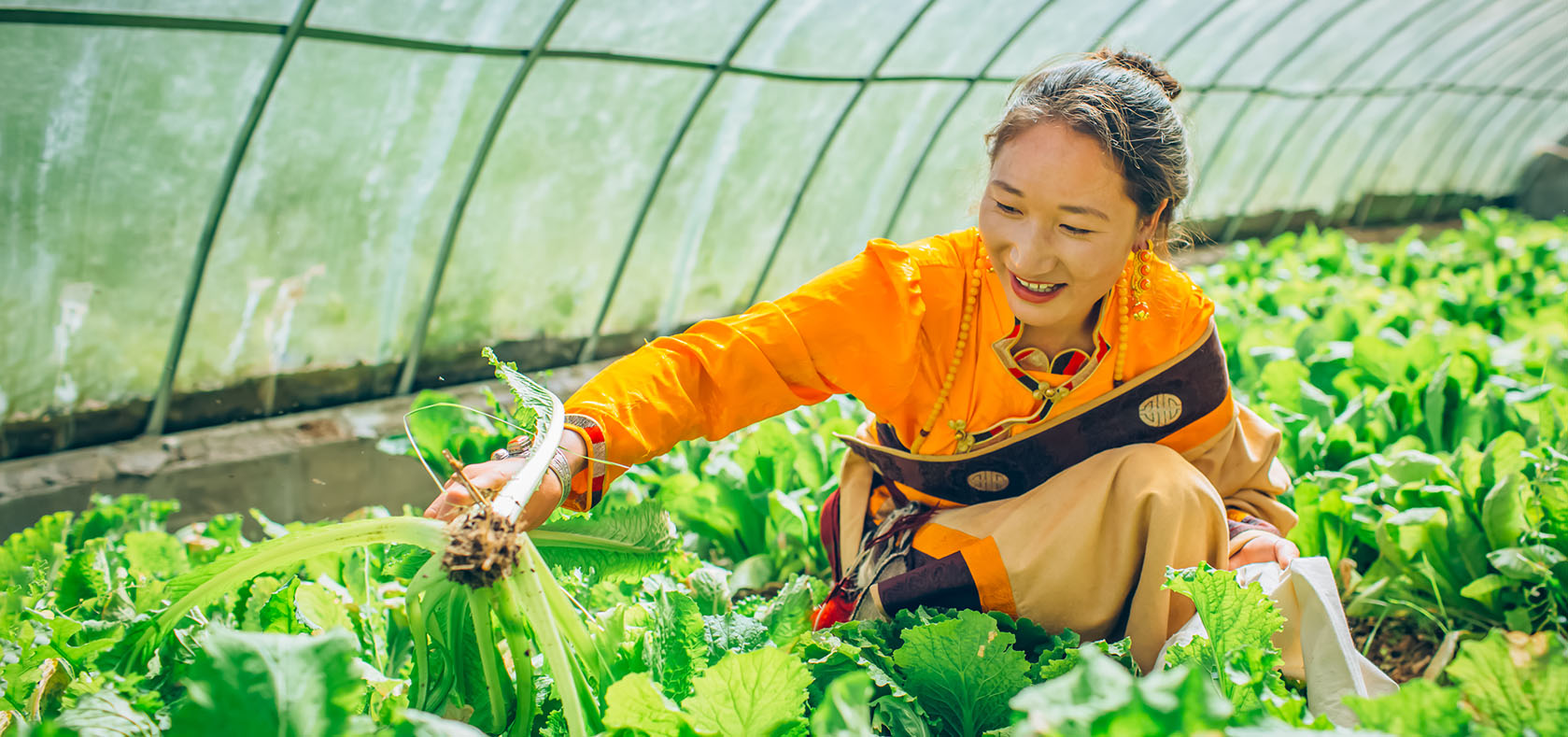New UN Women project helping women farmers in a western Chinese province make green energy transition
Date:
Authors: Xiaerbati Daositeke and Qing Wang

Xining, China — UN Women is helping women farmers switch to using renewable energy in Qinghai Province, which is located in the Tibetan Plateau with rich solar energy sources but also heavily affected by extreme weather and climate change.
On 11 May UN Women China and the Qinghai Rural Revitalization Bureau jointly launched the Women-led Rural Community Renewable Energy Transition and Governance Project. The 1 ½-year effort, funded by ClimateWorks Foundation, a San Francisco-based charity, will increase women’s access to and use of renewable energy in order to boost agricultural productivity and mitigate climate change. At the same time, it will promote women’s leadership in the green transition.
The number of beneficiaries will be decided in consultation with the local government and UN Women’s civil society partners, but the project will support at least one women-led agricultural cooperative.

The project launch in Xining, the provincial capital, brought together local government officials from the Qinghai Rural Revitalization Bureau, Department of Ecology and Environment of Qinghai Province, Qinghai Energy Bureau, and Qinghai Women’s Federation, as well as representatives from non-governmental and civil society organizations, grass-roots women’s groups, and UN Women China.
The government representatives outlined strategies and potential opportunities for green rural revitalization and support for rural women. The representatives of the non-government groups – which support climate action, rural women’s livelihoods, entrepreneurship and leadership -- talked about their needs, challenges and experiences regarding renewable energy access and use.
In China and globally, climate change disproportionately hurts women, who are much more likely than men to be killed or displaced by natural disasters. At the same time, women are far from being equally involved in the technical solutions to climate change.
Smriti Aryal, Country Representative of UN Women China, said: “Women are at the heart of rural revitalization and green transition. As women make up around 70 per cent of the rural labor force in China, promoting renewable energy utilization and low-carbon transformation of agriculture is impossible without mobilizing and empowering rural women.”
Dajun Wang, Deputy Director General of the Qinghai Rural Revitalization Bureau, said: “Promoting a comprehensive green transformation of economic and social development has become a universal consensus in the international community. In order to promote the empowerment of rural women in Qinghai Province, the project will provide technical support to grass-roots women and focused support to selected women-led agricultural activities and communities.”
The project will set up a network joining the local government and women’s, non-governmental and civil society groups that will foster learning from examples of women’s access to and use of renewable energy technologies. The project also will give women in Qinghai training on rural carbon neutrality strategies, renewable energy technologies, agricultural production and business skills, and entrepreneurship and leadership.

The training will be given to small-holder farmers from at least one women-led agricultural cooperative, as well as to members of local civil society organizations working on climate action and/or women’s empowerment.
The project also will arrange for technical experts from academia and green energy technology companies to provide women-led agricultural cooperative(s) with portable renewable energy solutions that include key technical parameters such as the size of solar panels and ways to connect them with agricultural machinery.
A pilot site will be set up for testing and demonstrating how the renewable energy technologies can better sustain women’s livelihoods and promote women’s leadership in their community.
